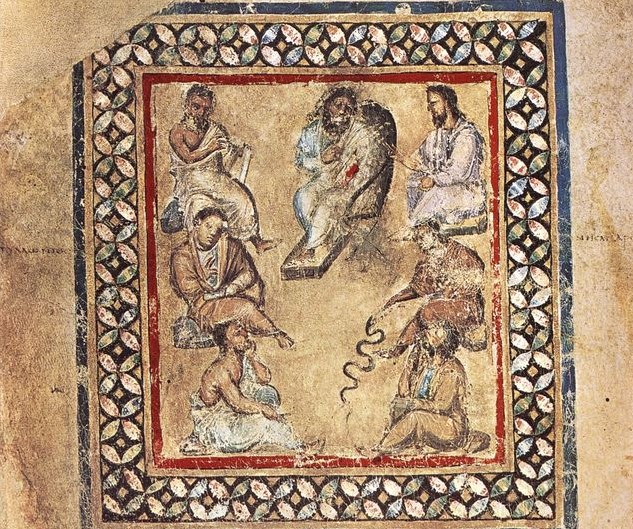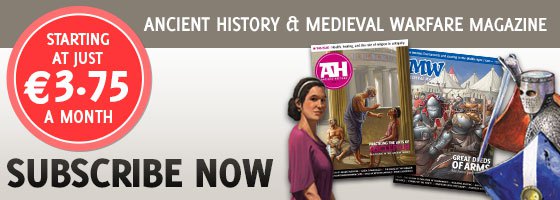Roman Doctors: From Charlatans to Wonder-Workers
By Joshua Yankell
Senior Honors Theses, Brandeis University (2014)

Introduction: This thesis explores the course of Roman medicine from its birth through its development into a professional practice through the military. First, this thesis examines the earliest stages of Roman medicine and how it influenced Romans’ views of medicine. It then investigates Roman society’s view of doctors during the second century CE through the writing of Galen, a renowned practitioner of medicine from Pergamum. The final chapter explores how the Roman military provided Roman medicine the avenue through which it grew and thrived throughout the Roman Empire. While many have examined these three components separately, none have ever combined them in order to explain the sentiments Romans had towards doctors and how Roman medicine has overcome them.
In order to understand the history of Roman medicine and its social standing within Roman society, we go back to the ancient Egyptians, their advanced medical practices, and how these influenced the three distinct “styles” of Greek medicine: Homeric medicine, religious medicine, and empirical medicine. In contrast, Romans of the time distrusted doctors and focused on folk-medicine. We can understand Roman society’s sentiment towards Greek medicine and doctors by first examining the growth of ancient Mediterranean medicine.


 Having explored the development of early Roman medicine, we can investigate the Romans’ perceptions of doctors and the growing medical field. We focus on Galen, an expert in Roman medicine who published numerous works in this field. The particular work examined within this thesis, De Optimo Medico Congoscendo, provided wealthy Romans with a guideline on how to select a good physician. De Optimo Medico Congoscendo perfectly illustrates how Galen and Roman society viewed doctors within Rome during the second century CE. The work clearly describes the key qualities of a good doctor, such as knowledge of the Hippocratic Corpus and various medical theories.
Having explored the development of early Roman medicine, we can investigate the Romans’ perceptions of doctors and the growing medical field. We focus on Galen, an expert in Roman medicine who published numerous works in this field. The particular work examined within this thesis, De Optimo Medico Congoscendo, provided wealthy Romans with a guideline on how to select a good physician. De Optimo Medico Congoscendo perfectly illustrates how Galen and Roman society viewed doctors within Rome during the second century CE. The work clearly describes the key qualities of a good doctor, such as knowledge of the Hippocratic Corpus and various medical theories.
Lastly, I examine the role of the Roman military in the development of Roman medicine. This chapter delves into the requirements of a professional medical corps and how the Roman military met these various specifications in order to provide medical services to soldiers.
Click here to read this thesis from Brandeis University
Sponsored Content


Roman Doctors: From Charlatans to Wonder-Workers
By Joshua Yankell
Senior Honors Theses, Brandeis University (2014)
Introduction: This thesis explores the course of Roman medicine from its birth through its development into a professional practice through the military. First, this thesis examines the earliest stages of Roman medicine and how it influenced Romans’ views of medicine. It then investigates Roman society’s view of doctors during the second century CE through the writing of Galen, a renowned practitioner of medicine from Pergamum. The final chapter explores how the Roman military provided Roman medicine the avenue through which it grew and thrived throughout the Roman Empire. While many have examined these three components separately, none have ever combined them in order to explain the sentiments Romans had towards doctors and how Roman medicine has overcome them.
In order to understand the history of Roman medicine and its social standing within Roman society, we go back to the ancient Egyptians, their advanced medical practices, and how these influenced the three distinct “styles” of Greek medicine: Homeric medicine, religious medicine, and empirical medicine. In contrast, Romans of the time distrusted doctors and focused on folk-medicine. We can understand Roman society’s sentiment towards Greek medicine and doctors by first examining the growth of ancient Mediterranean medicine.
Lastly, I examine the role of the Roman military in the development of Roman medicine. This chapter delves into the requirements of a professional medical corps and how the Roman military met these various specifications in order to provide medical services to soldiers.
Click here to read this thesis from Brandeis University
Sponsored Content